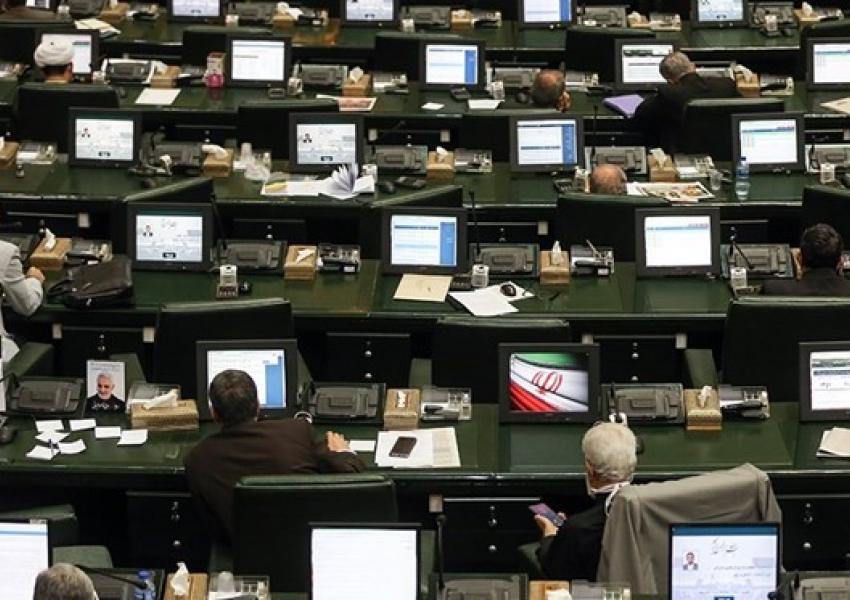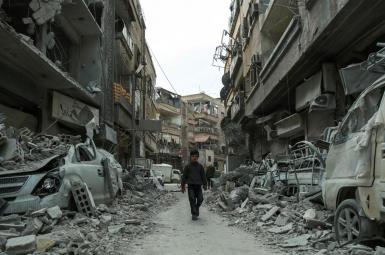
Iran's Parliament Moving To Reject Rouhani Budget Bill
The Iranian Parliament (Majles) is likely to reject the annual budget bill presented by President Hassan Rouhani's administration, or to approve a partial budget for the first three months of the coming Iranian year that starts on March 21.
Based on advice offered by the Majles Research Center, Speaker Mohammad Bagher Ghalibaf on Sunday, December 27, once again called on the Rouhani administration to send an amended version of the bill. Both the research center and the speaker of the Majles said that biggest problem about the budget bill is its sizable deficit.
The deficit is mostly because of US economic sanctions that have prevented Iran from exporting crude oil and earning billions of dollars that has traditionally financed more than half of the government budget. The draft budget is based on overly optimistic assumption about much higher oil exports next year that depends on negotiations with the United States.
Speaking to the Iran International TV, Jamshid Assadi, an Iranian economist based in France said, "the issue of budget deficit in Iran is not new although it is regrettable." Assadi added that the budget deficit means high prices, rising inflation and unemployment await Iranians in the coming year. Assadi said that the government should either borrow or print money, or try to reduce its expenses.
He added that there are three key groups of expenditures the Iranian government finds hard to reduce. "Forty three percent of Iranian companies that are owned by various government institutions not only do not pay any tax, but they also receive money from the government," Assadi said.
A bigger item is the budget allocated to rentier organizations such as tens of religious institutions that get hefty budgets but do not produce any goods or services. And finally, there are the subsidies paid by the government to the general population. The Rouhani administration finds it difficult to reduce these expenses because it does not want to annoy powerful institutions linked to his hardline political rivals.
Approving a partial budget is nothing new and the Majles has already done that in 2012 and 2013. However, such an emergency measure shows the administration's weakness in running the country's economy. However, this is the solution preferred by the Majles Research Center that is chaired by a staunch critic of Rouhani, the hardline Alireza Zakani.
Ghalibaf said at the open session of the Majles that the budget bill requires essential corrections. His comment comes after a joint session of the Majles and the administration last week that was characterized by some government officials as "promising".
Ghalibaf added that on Monday the Majles will hold a closed door session to discuss the problems of the budget bill, but he did not say if anybody from the administration will be present at the session.
President Hassan Rouhani has said that he is looking for a solution that would amend the budget bill without doing any damage to its general structure. But the main issue is a huge shortfall in revenues, that is beyond anyone's ability to solve, unless Iran settles its problems with the Unites States.
Last week, Elias Naderan, a hardline lawmaker who chairs the parliament's economic committee said that the situation might call for a budget bill with two different sets of figures for different situations that might occur in the next Iranian year.
One of the concerns of the conservative-dominated parliament is that the current budget bill is likely to make life difficult for the next Iranian administration that takes office in the middle of next year after the Presidential election in June. The Majles is more or less certain that the next government of Iran will be a like-minded conservative government.
According to Ghalibaf, the economic committee is going to brief the Majles about the problems of the budget bill in Monday's closed door session before putting the bill to vote at the parliament on Tuesday.
Last year, the Rouhani administration had many problems in getting the budget bill through a Majles that was generally supportive of the administration. With the new Majles constantly at loggerheads with the administration, Rouhani's last budget bill may still have to face more obstacles.








